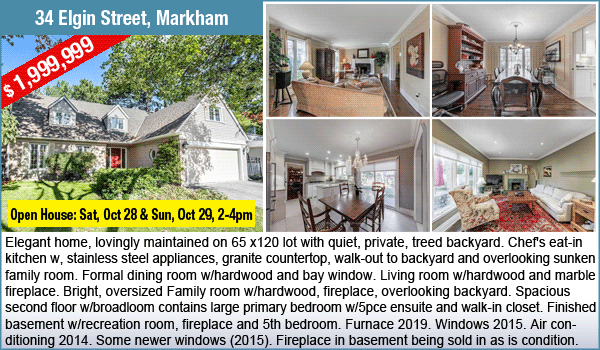Canada average home price 141% higher than median-earning Canadian family can afford: report finds
The average home price in Canada is 141 per cent higher than what a Canadian household making the median income can afford, according to new data from RATESDOTCA.
The report published Thursday looked at data on home prices and median earnings for Canadian households.
It found that a Canadian family earning the median household income of $79,876 can reasonably afford a $315,000 home, with a maximum insured mortgage of $299,500.
However, the average home price in Canada is currently $757,600, the report noted – considerably pricier than what the average household can afford.
TORONTO, VANCOUVER
Prices are even higher in Canada’s most expensive housing markets, with average home values topping $1 million in Toronto and Vancouver.
The report added that mortgage insurers won’t insure a home over $1 million, meaning interest rates are increased and a bigger down payment is required.
With uninsured mortgage amounts included, the report found that average home prices in Toronto are 162 per cent higher than what a median-earning family can afford, while home prices in Vancouver are 195 per cent higher.
The reported included commentary from several economists affiliated with the Canadian Mortgage and Housing Corporation (CMHC).
Aled ab Iorwerth, deputy chief economist at the CMHC, cited factors such as population growth, increased income, and low interest rates that have drawn many professionals to major cities like Toronto and Vancouver.
“But now, as demand is going up, these cities are quite slow in increasing their housing supply,” he said.
ALBERTA
Home prices in Alberta’s major urban centres are more affordable when compared to Toronto and Vancouver.
However, RATESDOTCA said a Calgary family earning the median income would still need 43 times that amount to afford the price of an average home in the city.
“While Alberta overall is generally considered more affordable than Ontario and British Columbia, Stampede City has seen heavier interprovincial and international migration in the past few months, resulting in a rise in the cost of housing,” the report said.
“Another reason for the rapidly heating housing market is Calgary’s emerging reputation as a high-tech hub, which has attracted a post-pandemic bump of new residents.”
Edmonton, meanwhile, is the only major Canadian city where a median-earning family can afford the price of an average home.
Taylor Pardy, a CMHC economist, was quoted in the report saying that new construction in Edmonton has been more responsive than other cities to changes in demand, and slowing economic activity has put downward pressure on prices.
“Following the significant decline in oil and gas prices in 2015 (to) 2019, economic activity in Edmonton moderated a fair bit,” Pardy said.
“This has allowed housing supply to catch up and maintain that ample supply for much of the past decade, leading to flat or even declining prices in certain segments of the housing market.”
ATLANTIC CANADA
Housing prices are mixed on Canada’s east coast, but the report found that home values in the region’s largest city are still amongst the highest in the country.
The average home price in Halifax is 83 per cent higher than what a typical household can afford, with another CMHC economist citing a supply chain imbalance as a reason for the continued rise of home and rental prices in the city.
“Demand for housing in the last few years has grown due to higher-than-normal population growth,” Kelvin Ndoro said in the report.
“However, the supply of new housing units has not kept pace with demand, and some factors that can affect supply of housing can be construction costs, land prices, land-use regulations, and interest rates.”
Prices are more manageable by comparison in Saint John, N.B. and St. John’s N.L., where average home values are around $300,000. But that’s still seven per cent higher than what the average household can afford, according to the report.
‘ALL HANDS ON DECK’
In the report, Iorweth said that while an imbalance in demand and housing supply drives unaffordability, increasing the number of homes in Canada will be a challenge as construction financing will be more difficult due to higher interest rates.
Iorweth added that an “all-hands-on-deck” approach is needed to address the housing affordability crisis, involving “all government and private parties working together to restore the housing market.”
This article was reported by BNNBloomberg
















